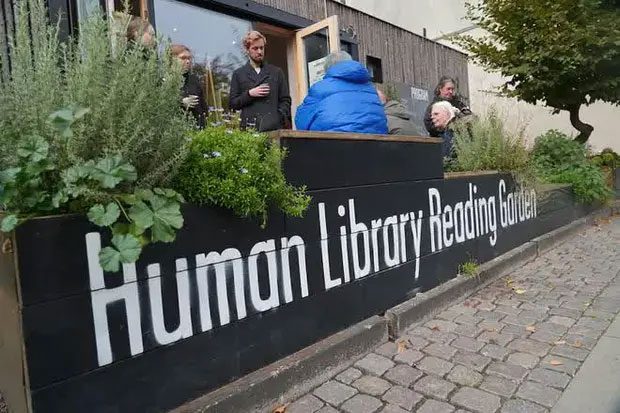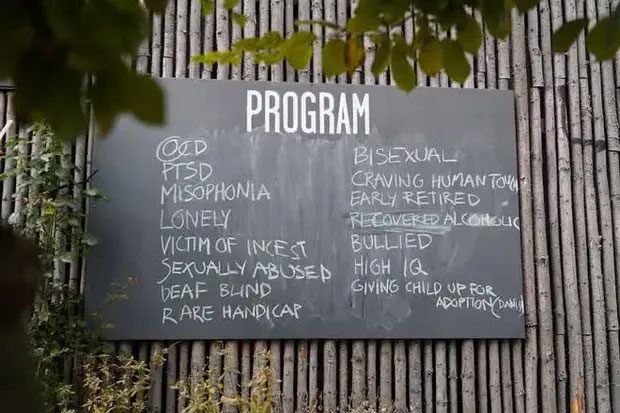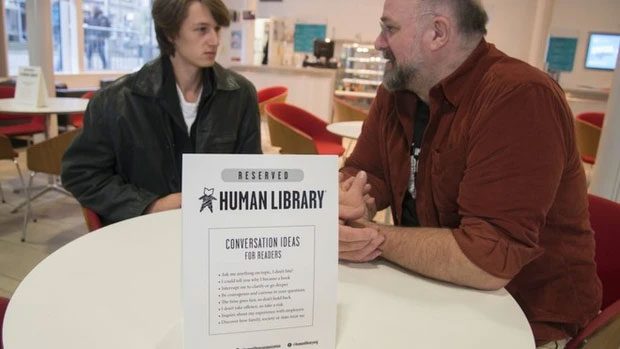At this unique library, you cannot borrow books; instead, you can “borrow people” to converse and listen to their stories.
When we think of a library, most of us picture a large room filled with shelves packed with a variety of books categorized neatly, along with absolute silence. However, in Denmark, there is a special library where there are no books, and instead of silence, it is filled with the sounds of people chatting.

The unique library scene in Denmark.
Conceived in the early 2000s and first appearing at the Roskilde Music Festival in Denmark under the name “Human Library” (translated: Human Library), this library has garnered significant attention and has since grown into a large organization.
In this library, those who come as “readers” do not borrow books to read; instead, they can “borrow people” to talk to, to tell or listen to stories from complete strangers.
A representative of the program shared that they chose the term “library” because it serves as a neutral space in society: “Whether you are old or young, rich or poor, regardless of who you are, we can all meet there and learn from each other,” he said.

The library is built to help people eliminate prejudices about others in society.
In this library, each selected individual represents groups that are often misunderstood or face significant prejudice in society. Here, they play the role of a “book” with a title that highlights their characteristics, such as “OCD – Obsessive-Compulsive Disorder,” “High IQ,” “Bisexual,” “Lonely Person,” or “Early Retiree.” Through this, the library hopes that readers will open their hearts to understand these individuals better rather than just judging by appearances and stereotypes.
“I cannot claim that a 30-minute conversation will change anyone. What I am confident about is that, with effort, disagreements and prejudices about these individuals will gradually change,” the library representative stated.

List of “book titles” available in the library.
To become a part of the “Human Library,” volunteers are required to possess patience, empathy, and comfort in sharing their personal issues with others.
On the other hand, “readers” visiting the library will choose a person whose characteristics intrigue them and head to the conversation area. Here, two or more individuals will exchange and share their stories for 30 minutes.
This space also encourages “readers” to ask difficult questions they have always wondered about these special individuals. Each “book” can represent anyone from funeral organizers, veterans, to children, each bringing their unique perspectives and experiences, offering “readers” a remarkably diverse experience.

Many people come here to listen and be heard.
“We seek out homeless individuals, the unemployed, those with depression, mental health issues, or disabilities; we can learn a lot from them,” explained Ronni Abergel, the founder and executive director of the nonprofit organization.
Currently, thousands of volunteers have participated with this organization in numerous events at schools, businesses, and locations worldwide. In fact, this unique library model has existed in over 80 countries and is likely to develop into a mobile application, making it more accessible to people around the globe.





















































